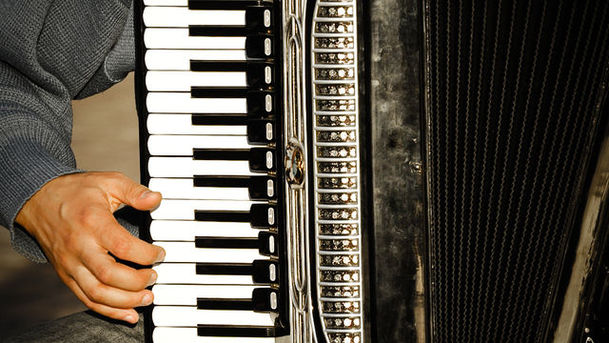The Big Squeeze

When an American cheese company was looking for a musical instrument to symbolise the stringy, bland and synthetic product of its rival it turned to the accordion. This, surely, was the low point for an instrument routinely associated with French cafe scenes on TV and buskers of dubious musical ability. But for James Crabb, it's time to give the instrument a break, time people really heard what the 'stomach Steinway' can do. It's certainly an instrument with an incredible history. In the tiny Italian town of Castelfidardo, just outside Bologna, he discovers the beating heart of the global accordion industry, a workforce which at one time was competing head-on with Fiat as the country's number one exporter. And it continues to this day: factory after factory of craftsmen hand-making instruments which in many cases contain as many as 10,000 parts. Crabb's real passion is the classical accordion. And this turns out to be an instrument which needed a double revolution. First there was the invention of a new instrument, one capable of escaping the tyranny of the oom-pah. It sounds crazy, but for years accordionists could play only chords with their left hand. No wonder they got a reputation for music that all sounded the same. But with a radical redesign along came a new repertoire. No longer were accordionists relegated to bit-parts in operas where they played in an on-stage dance band. Now accordion composers, and accordion players, were limited by their imagination alone....